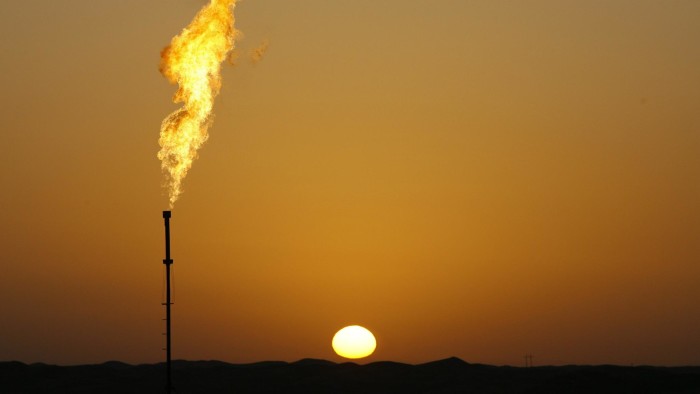China’s war on graft leads to drop in outbound investment

Simply sign up to the Chinese politics & policy myFT Digest -- delivered directly to your inbox.
Chinese outbound investment has fallen sharply in the first half of the year, reversing nearly a decade of rising spending as overseas dealmaking becomes the latest casualty of the country’s strident anti-corruption campaign.
By the end of June, Chinese companies had spent a combined total of $39bn on overseas mergers, acquisitions and greenfield projects, down from $46bn in the same period a year earlier, according to figures from the Heritage Foundation, which closely monitors Chinese investment flows.
Analysts believe the main reason for the disappointing performance is a lack of major Chinese offshore energy investments this year, which they say is largely due to President Xi Jinping’s anti-corruption campaign, which has particularly targeted the Chinese energy sector.
“As the [Chinese] oil companies have come under scrutiny from corruption investigators, that has reduced their risk appetite when it comes to offshore investment,” said Thilo Hanemann, an expert in Chinese outbound investment and research director at the Rhodium Group, a research consultancy. “The lack of big headline energy deals is a big drag on the total outbound investment number.”
Dozens of top executives at China National Petroleum Corporation, the state-owned parent of listed PetroChina, have been investigated or detained on corruption charges over the past year. The company did not make a single big offshore investment in the first half of this year.
In July Zhou Yongkang, the former head of China’s ubiquitous internal security apparatus, became the most senior official to be accused of corruption since the founding of the People’s Republic in 1949.
Before his downfall, Mr Zhou was known as the leader of the “petroleum gang”, a faction within the ruling Communist party with deep and longstanding ties to the Chinese state-owned energy sector.

Investments in foreign markets beyond the reach of the Chinese authorities have been a favourite vehicle for corruption and money-laundering in recent years, according to officials and Chinese executives familiar with the matter.
Chinese state-owned companies regularly overpay for global acquisitions, which sometimes involve kickbacks or secret side-deals to enrich party officials and their relatives.
In the midst of the current anti-corruption campaign, which began in 2013 but ramped up significantly this year, many state enterprises are reluctant to make any offshore investments at all, because of the perception these deals are often corrupt.
“If the Chinese anti-corruption campaign draws down then we will see a rebound in Chinese outbound investment,” said Derek Scissors, resident scholar at the American Enterprise Institute and compiler of the Heritage Foundation database. “If the spotlight shifts off of the Chinese oil companies then we will also see a rebound since they are such a big and important part of Chinese spending overseas.”
Starting from almost nothing a decade ago, Chinese outbound direct investment has surged every year except 2009, when it fell back slightly, according to Heritage Foundation figures.
Newly revised Chinese government figures, which most analysts say only provide a partial picture, show outbound investment exceeded $100bn for the first time last year, with a 23 per cent increase from 2012.
China’s outbound investment is increasingly driven by private companies, which have not been affected as much by the anti-corruption campaign.
Official figures released last week by the Ministry of Commerce showed a surge of such investment in August, leaving outbound investment for the first eight months of this year up by 15.3 per cent from the same period a year earlier.
However, these figures are not considered by analysts to be very reliable. For example, they count the Chinese territory of Hong Kong as the biggest recipient of Chinese outbound investment, even though much of that investment just passes through the former colony and in some cases is a result of related transactions between mainland and Hong Kong arms of the same company.
Comments